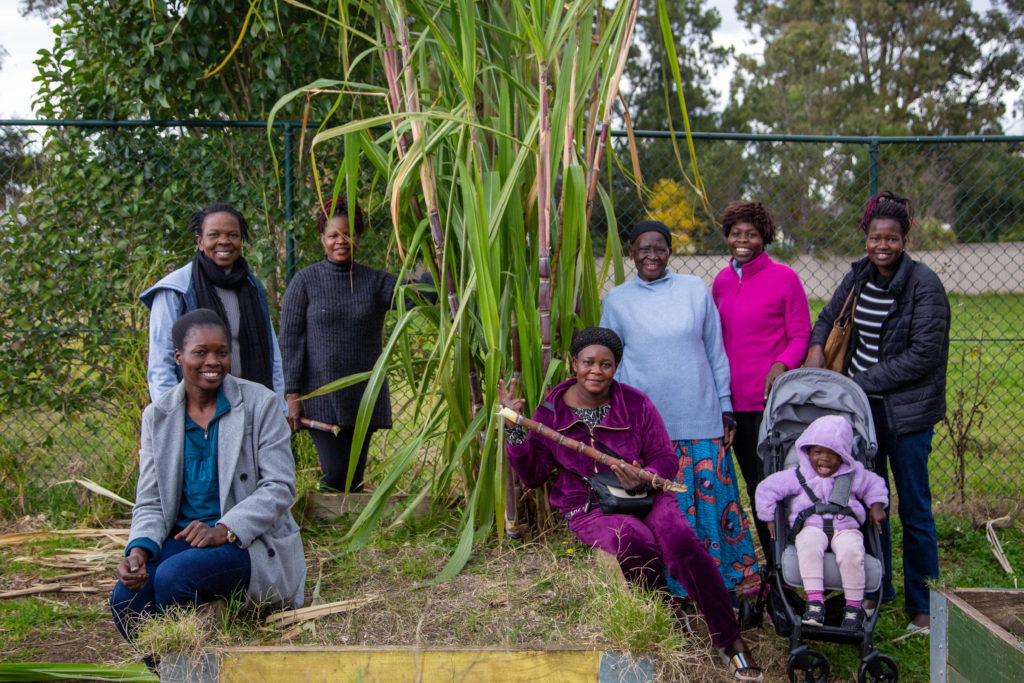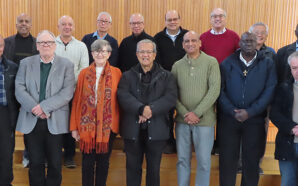The Season of Creation coincides with our Australian Spring weather. In Blacktown, a group of gardeners are sustainably growing their favourite vegetables and following the call to care for each other and our common home.
It’s Thursday morning and Margaret Bayoa has finished her night shift.
After getting home at 7am, she gets her kids ready for school and drops them off.
But instead of heading home to rest after work, she is pulling weeds and cultivating her garden bed alongside other Sudanese women in the community garden at the All Saints of Africa Centre, next to St Patrick’s Church in Blacktown.
I ask her why she isn’t at home taking it easy. “My heart is here,” she replies with a beaming smile, looking over the beds of traditional African crops.
Catholic Care Western Sydney and the Blue Mountains Family Support Worker Rafa Godo explains that the All Saints of Africa Centre was established as a central hub for members of the African community to gather and to socialise.
Originally established for young people, over time, local Sudanese women have become the main group of gardeners. They grow okra, black beans, white corn, sukuma and sugar cane – crops that are Sudanese staples and remind the gardeners of home.
Although it is an overcast day when I visit the garden, it fails to dampen their spirits as the women chat as they pick from the existing plants and begin preparations for Spring.
Each woman has her own garden bed, but if someone is not around, the other members of the community are allowed to harvest their crops. The food is also shared amongst the community members free of charge.

Community gardeners at the All Saints of Africa garden in Blacktown. Image: Mary Brazell/Diocese of Parramatta
“We often have a lot of people asking for the food from the garden,” one of the women explains.
“My kids ask me when I am cooking whether the food is from the garden. When I say ‘yes’ they get excited.”
The garden is a living example of sustainability. The women harvest their own seeds from the crops, and the only item they pay for is water. Any leftovers are frozen for use throughout the year.
“It’s really encouraging that we are planting our own seeds, and it’s organic and healthy for us to eat,” Esther Kenyi says.
As well as tending to the garden, the women are also nurturing their relationships with one another and with their community.
“On Thursdays, we have playgroup and then afterwards, I go and do garden work,” Hanna Abadia says. “Working in the garden is exercise for me and it feels really good.”
Helping out in the garden is beneficial for older members of the community too, says Hanna. “For some of them, it is the only way to get them out of the house, out exercising and keeping them busy during the day,” she says.
The women feel that they are embracing Pope Francis’ call to care for creation and care for the earth through their traditional gardening practices and also by sharing the food with others.
Growing their own food helps the members of the community save money. Their native vegetables are often hard to find in markets, and, as the women explain, don’t taste as good.
As the garden remains a staple for the community, the gardeners hope to find a bigger plot of land around Western Sydney and expand their garden.
Tips from the All Saints of Africa gardeners:
- Keep older crops in for longer – it enriches the soil for new planting in the spring.
- Use grass clippings, manure and homegrown compost, instead of fertiliser.
- If you have leftovers after your harvest, freeze them for use throughout the year.
- Sharing your harvest builds community!
A recipe for Sukuma
- Wash sukuma and cut finely.
- Chop onions and tomatoes.
- Cook onion in oil until it browns then add sukuma.
- Cook for five minutes.
- Add tomatoes.
- Flavour with salt, seasoning or finely cut onion leaves.
- Add a small amount of water to prevent it burning.
- Cook it on slow until you are happy with the taste.
- Serve with meat and ugali.
This article was originally published in the 2022 Season of Creation | Spring 2022 edition of the Catholic Outlook Magazine. You can pick up your copy of the magazine in parishes, schools and offices across the Diocese of Parramatta now or you can read the digital version here.









